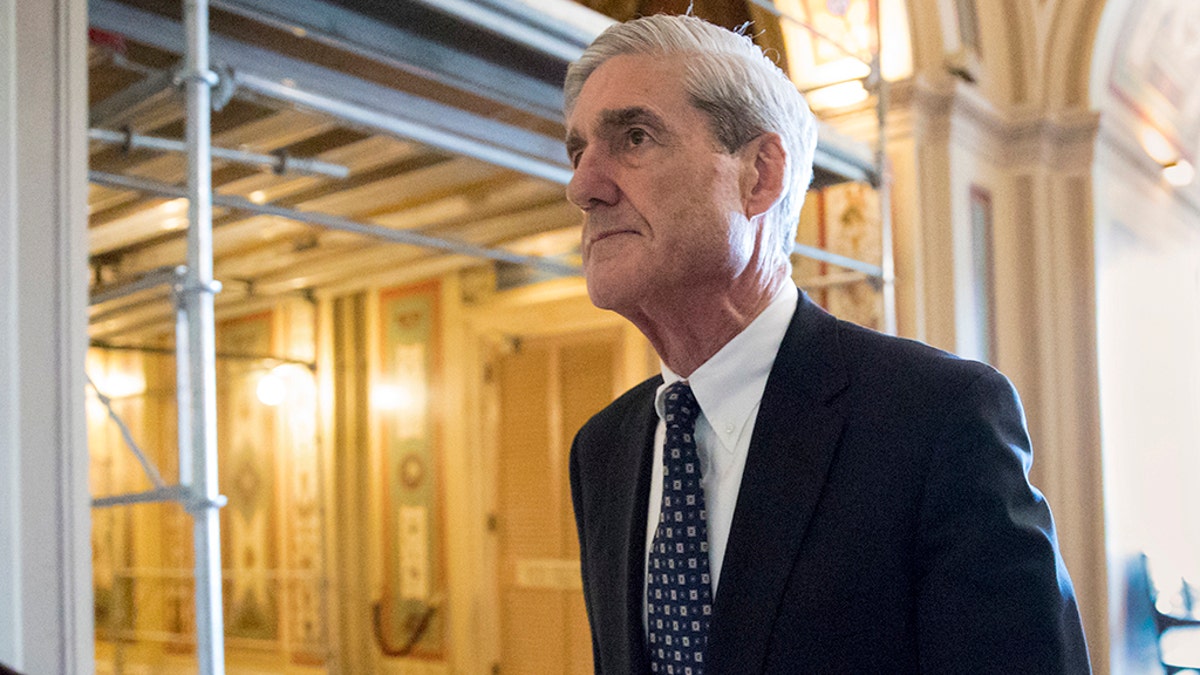
Special Counsel Robert Mueller. (AP Photo/J. Scott Applewhite, File)
What a weasel word “collusion” is.
In Washington, Senator Richard Burr, (R., N.C.), chairman of the Intelligence Committee, has now seen fit to pronounce that, after two years of investigation, the panel has found no evidence of collusion between the Trump campaign and the Russian regime.
Meanwhile, in a nearby courtroom, Special Counsel Robert Mueller’s senior staffer, Andrew Weissmann, told a federal judge that an August 2016 meeting between the then-chairman of the Trump campaign and a suspected Russian intelligence officer “goes . . . very much to the heart of what the special counsel is investigating” — which sure sounds like Mueller’s collusion hunt is alive and well.
What gives?
'IT IS SIMPLY NOT THERE': GOP SEN. RISCH SAYS THERE'S STILL NO EVIDENCE OF TRUMP-RUSSIA COLLUSION
Readers of these columns know that the “collusion” label has been a pet peeve of your humble correspondent since the media-Democratic “Putin hacked the election” narrative followed hard on the declaration of Donald Trump’s victory in the wee hours of Wednesday morning, November 9, 2016.
The reason for the collusion label is obvious. Those peddling the “Putin hacked the election” story have always lacked credible evidence that Trump was complicit in the Kremlin’s “cyber-espionage.” They could not show a criminal conspiracy.
Connections between denizens of Trump World and Putin’s circle might be very intriguing, and perhaps even politically scandalous. But only a conspiracy — an agreement by two or more people to commit an actual criminal offense, such as hacking — would be a reasonable basis for prosecution or impeachment.
This dearth of proof was significant. The Russians apparently started hacking operations in 2014, long before Trump entered the race. The FBI first warned the Democratic National Committee about penetration of its servers in September 2015.
By the time Trump won, the Bureau and U.S. intelligence agencies had been working hard to understand the nature and extent of Kremlin-directed hacking operations for two years. The investigation was so high-level, so intense, that shortly before the election, there were confrontational conversations between CIA director John Brennan and his Russian counterpart, FSB chief Alexander Bortnikov, and later between President Obama and Russian president Putin.
Yet, as thorough as the investigation was, no one could credibly say Trump was a participant in Russia’s malfeasance. The best Obama’s notoriously politicized CIA could say was that Trump was Putin’s intended beneficiary.
Unable to establish conspiracy, Trump’s opposition settled on collusion. It is a usefully slippery word. Collusion just means concerted activity — it can be sinister or benign. It can refer to a conspiracy or to any arrangement people have together, including those that may be sleazy but non-criminal.
CLICK HERE TO READ THE REST OF THIS OP-ED PUBLISHED IN THE NATIONAL REVIEW








































